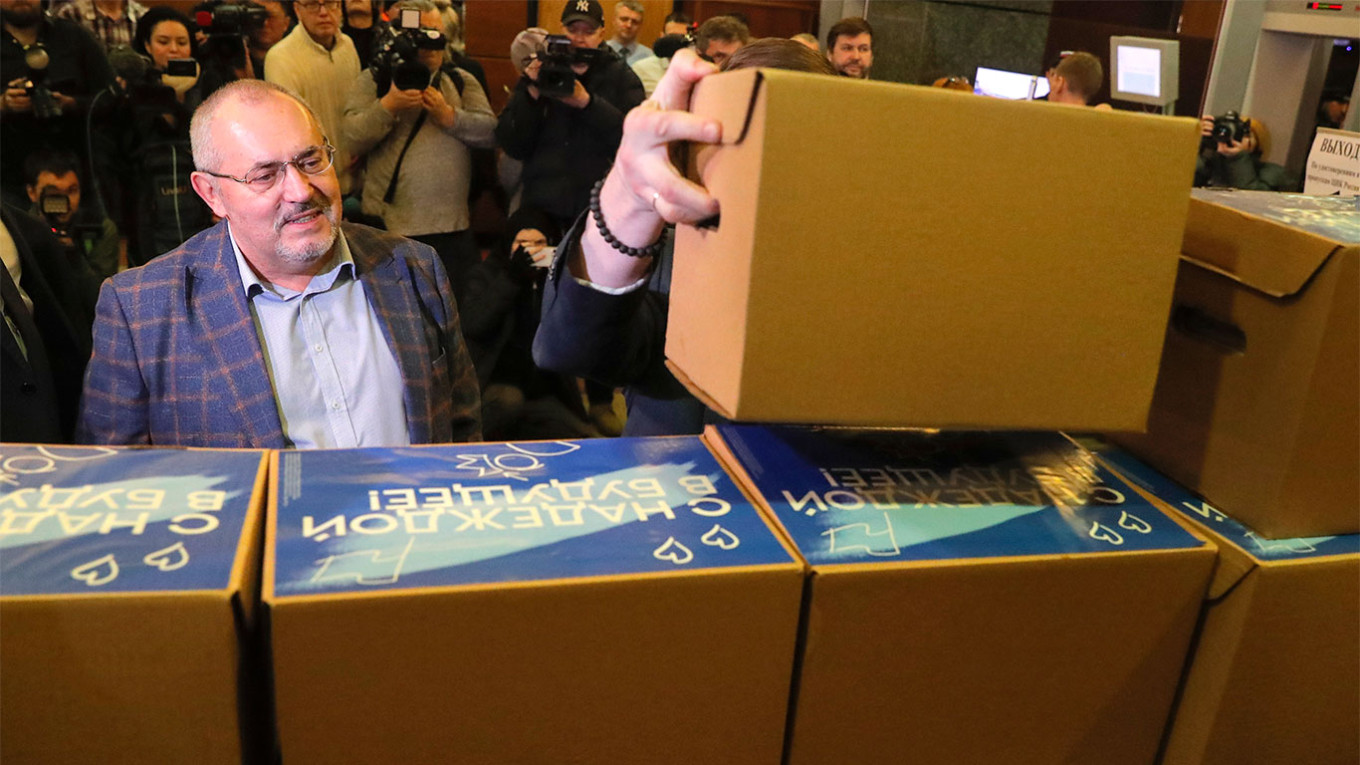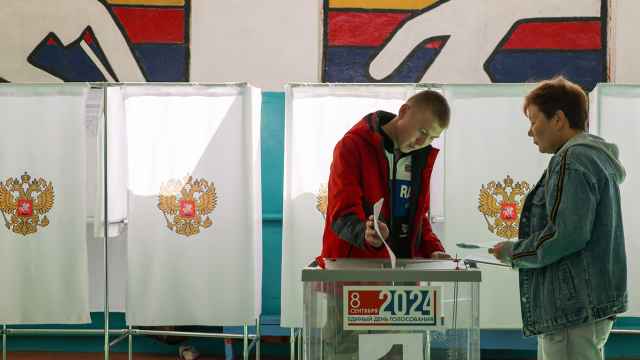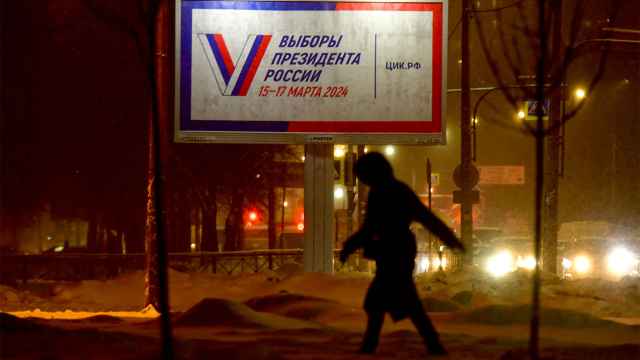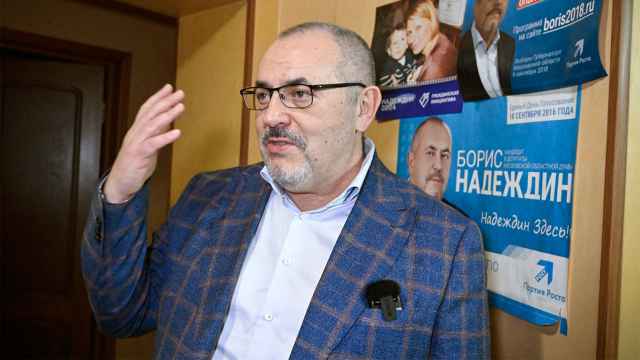Russia’s Central Election Commission (CEC) has found flaws in more than 15% of the signatures of endorsement collected by pro-peace presidential hopeful Boris Nadezhdin, his campaign team said Monday.
Nadezhdin, who has emerged as the leading pro-peace voice ahead of the March presidential election, submitted some 105,000 signatures to CEC for review last week.
But on Friday, election officials said they had uncovered flaws in the endorsements that “elicit surprise” and invited the presidential hopeful to review the documents at a meeting on Monday.
“A CEC working group informed us that [they found] flaws in 15% of the signatures I submitted on Jan. 31,” Nadezhdin wrote on the Telegram messaging app.
Nadezhdin said his campaign team plans to dispute the errors found by election officials.
If they can prove that 4,500 of the 9,209 signatures claimed to contain various flaws can be proven valid, he would be eligible to run in the March presidential election, he said.
Russian election law requires prospective candidates running from a party without representation in parliament to collect 100,000 signatures of endorsement.
“If the Central Election Commission refuses to register me as a candidate, then I'll dispute it with the Supreme Court,” Nadezhdin said.
A final list of registered presidential candidates is expected on Wednesday.
An unidentified source in Nadezhdin's campaign team later told the 7x7 regional news outlet that the flaws found by election officials ranged from incorrect personal information provided by signatories to a lack of notarization on some endorsement papers.
“We disagree with the decision made by the [CEC] working group,” his campaign told journalists on Monday.
“The whole world saw that we collected signatures honestly.”
Nadezhdin, who hopes to run as a candidate from the Civic Initiative party, has seen a surge of support over the past month.
Long lines formed outside his campaign offices both inside Russia and abroad as thousands of pro-peace Russians hoped to safely express their opposition to the war in Ukraine by endorsing his election bid.
A Message from The Moscow Times:
Dear readers,
We are facing unprecedented challenges. Russia's Prosecutor General's Office has designated The Moscow Times as an "undesirable" organization, criminalizing our work and putting our staff at risk of prosecution. This follows our earlier unjust labeling as a "foreign agent."
These actions are direct attempts to silence independent journalism in Russia. The authorities claim our work "discredits the decisions of the Russian leadership." We see things differently: we strive to provide accurate, unbiased reporting on Russia.
We, the journalists of The Moscow Times, refuse to be silenced. But to continue our work, we need your help.
Your support, no matter how small, makes a world of difference. If you can, please support us monthly starting from just $2. It's quick to set up, and every contribution makes a significant impact.
By supporting The Moscow Times, you're defending open, independent journalism in the face of repression. Thank you for standing with us.
Remind me later.






